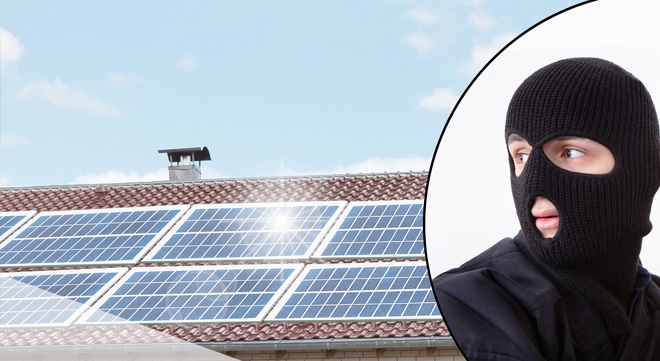The high value of solar panels and the lack of effective security measures have made them an attractive target for thieves who sell them on the black market or as scrap.
The impact of solar panel theft can be significant, as it can disrupt the supply of electricity to communities and result in financial losses for individuals and businesses. In addition, the replacement of stolen solar panels can be costly and time-consuming.
“Over the past few weeks, we have received reports of solar panels being stolen from properties, typically during the day while homeowners are at work,” private security group Fidelity ADT said. It also noted that criminals are continuously shifting and altering their patterns of behaviour, making it increasingly important for homeowners to keep up with security trends.
South African households have imported more than R5 billion in home solar equipment in the past year, as many seek ways to escape Eskom and prolonged load shedding.
According to President Cyril Ramaphosa, the government is looking at ways to incentivise the greater uptake of rooftop solar, such as developing a pricing structure for feeding excess power back into the grid or providing tax breaks and other incentives to speed up the rollout.
Details of the rooftop solar incentive were announced during the Budget on Wednesday.
Read: Here are the Ts & Cs for claiming a tax rebate for installing home solar panels
Insurance requirements
Insuring your solar power equipment is not as simple as some may think. I spoke to my broker, Sonette Botes-Sadie, director of FFG Western Cape.
Obviously, the first step is to disclose this addition to your insurer.
At all times, make use of an accredited service supplier, and make sure you get a certificate of compliance after the work is done.
Potential losses (for example, the house burning down as a result of short-circuiting of the new system) because of possible defective workmanship during installation are excluded in most policies, and they should be covered by the contractor’s All Risks and Liability cover.
In an article written for farmers, Santam notes: “Besides presenting potential fire risks, non-compliance to such requirements could present a challenge in discerning the proximate cause should the panels/property be damaged, and a claim submitted to the insurer.”
Solar panels fixed to the roof are considered part of the replacement value of your building. If you make use of free-standing panels, you can insure them under the household contents section. Just take the limits for items outside the house into account.
In the case of a personal lines policy, clients should increase the building cover with the full replacement value of the entire system. They should also ensure that theft outside the building is covered in the policy, as some policies may only offer restricted cover. When the guarantee of the solar system expires, machinery breakage cover should be extended to include your solar system.
The last point also applies to commercial policies. Here there are various options:
- The cheapest option is Fire and Related threats for the full replacement value, and Theft (first loss). This allows you to specify the number of panels, assuming that not all of them will be stolen.
- The best option, but also the most expensive, is Business All Risks.
Preventative steps
In true entrepreneurial fashion, our criminals have also cottoned on to this new source of income, and home and business owners are advised to take additional steps to safeguard their new acquisition.
“To stay one step ahead of opportunistic criminals, it is important to make your home less of a target by making it as hard as possible for criminals to successfully carry out their plans on your property,” Fidelity ADT said.
Beside the normal precautions, consider making access to your roof difficult by locking away items such as stepladders and wheelie bins. The thieves might even use the latter to cart away your panels.
In addition to the above information, Sonette also sent me three brief articles written by ChatGPT, the new Wizard of Oz. Here are some preventative suggestions:
- To address this issue, various measures have been proposed, including the use of GPS tracking devices and other security technologies, increased law enforcement efforts, and community-based initiatives to prevent theft. In addition, some solar panel manufacturers have developed anti-theft technologies, such as locking systems and tamper-proof screws, to deter thieves.
- The government has also taken steps to address the issue of solar panel theft. For example, the Department of Mineral Resources and Energy is working on developing a national register of solar panels to help prevent theft and enable the tracking of stolen panels. Additionally, some municipalities have introduced by-laws requiring households and businesses to register their solar installations and report any thefts to the police.
My own suggestion is to get a decent guard dog. An added advantage is that you will have someone who will listen with great empathy when you share your woes when Stage 8 load shedding kicks in.
Or should that be “kicks out”?




The Theft Section of commercial policies will exclude theft cover of solar panels, as it requires signs of breaking and entering into a building. As solar panels are obviously mounted outside a building, there cannot be signs of breaking and entering into a building.
A Business All Risks- or Buildings Combined Section are the only options, provided the panels are attached to the building in the case of Buildings Combined policies.